I believe a lot of people have already asked this question as I have read all the topic from here. But the Problem is I have 3 related tables instead of 2 and I'm not sure how to code for that
I have a table: tbl_Instruments, tbl_Record and tbl_Cal_By.
tbl_Instruments has all the instruments information including their ID.
tbl_Cal_By has the information for whoever is calibrating the tool.
tbl_Records has all the instruments Records and their Calibration date. It inherits the ID from tbl_Instruments as Inst_ID and the Name from tbl_Cal_By as Name_ABBR.
tbl_Instruments: ID, Type
tbl_Cal_By: Cal_ID, Name_ABBR
tbl_Records: Record_ID, Inst_ID, Cal_Date, Name_ABBR
Here is my code.
SELECT tbl_Records.Inst_ID
,tbl_Instruments.Type
,Max(tbl_Records.Cal_Date) AS MaxOfCal_Date
,tbl_Cal_By.Name_ABBR
FROM tbl_Cal_By
RIGHT JOIN (
tbl_Instruments INNER JOIN tbl_Records ON tbl_Instruments.ID = tbl_Records.Inst_ID
) ON tbl_Cal_By.ID = tbl_Records.BY
GROUP BY tbl_Records.Inst_ID
,tbl_Instruments.Type
,tbl_Cal_By.Name_ABBR;
Desired result:
Any help will be appreciated!
